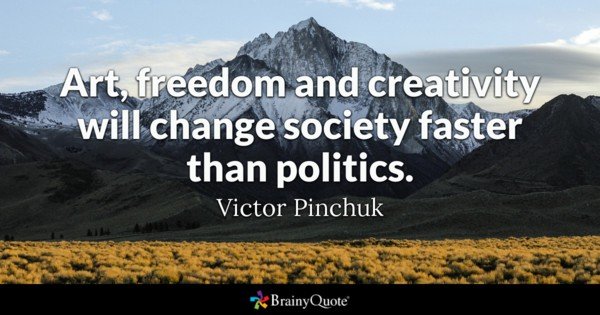While for some the making of money is a factual scope, for others the freedom of expression and getting recognition for that is more important. The cryptocurrencies broke the countries barriers and allowed developers and visionaries to share with the entire world their concepts. Built on trust, different cryptocurrencies were born and only those will remain in the end and will finally get adoption from everybody. Is like a stone thrown from a mountain, once it starts moving down, nothing can stop it.

You are viewing a single comment's thread from:
If you already have enough money then of course other aspects of life become much more important than money. The homeless person on the street who begs is someone who clearly needs more money. What can blockchain do for that person?
I see your point of view, but I still think that the money are a meaning to an end, but are not the scope of it. And there are people that live with little or nothing, they see the life more freely, living at friends couches until they get that one big thing out there. They are not thinking at that as an escape or money accomplishment, but rather a sense of doing something great. And I have some examples I'm speaking of, they might be the exceptions from the rules...but still... those are the pillars of revolutionary changes...
that are meaningful to them, and that for many the routes for that access do not hinge greatly on money as we understand money in the West? While for others money is a pre-requisite to gain some fo that access?Could we say, @cryptorg, that people want access to goods, services and relationships
Right on that, most of us we are in the cryptocurrency for money, other they are just to express a vision they have and be recognize as the leaders they are to (money for them is just a result, not the objective).
I first learned about bitcoin in 2015, and then studied books, watched educational videos etc. From that time until August 2017 my only interest in acquiring bitcoin was to participate in the now failed program of “small cross-border payments to relatives”; because I had become sick of Western Union fees. However, I never bought any because the people to receive my payments had no way of converting bitcoin into fiat at their end.
I have the intuition that this matter of receiving crypto transfers and making use of them to purchase goods and services remains a major issue around the world today among people with modest means. I would love to see an international survey of the capability to make use of crypto payments received, with breakdowns by country, and socio-economic category (the latter including education, of course).Thank you, @cryptorg, for a wonderful summary that reflects my motivations.
Anyway, only after I saw the big price run-up of 2017 did I say to myself “OMG, you could make some money with this thing”. Then I did the research to build my crypto portfolio. Even today, the amount of fiat money I have invested is so small that I have already written it off as a total loss (which means I will ignore the portfolio except to occasionally pick up some more “good stuff” when I see people throwing it out the window).
So, when Mr. Buterin expresses his concern about the relatively high proportion of people who are in the crypto space and who are excessively concerned about profits, he's certainly not talking about me.